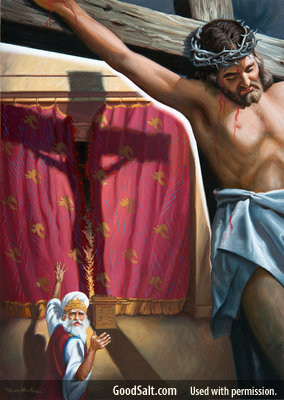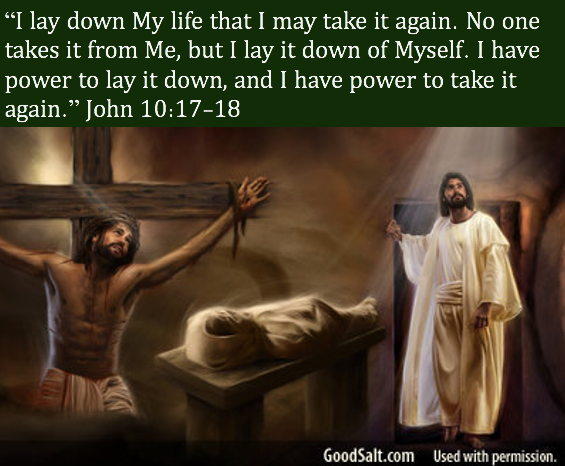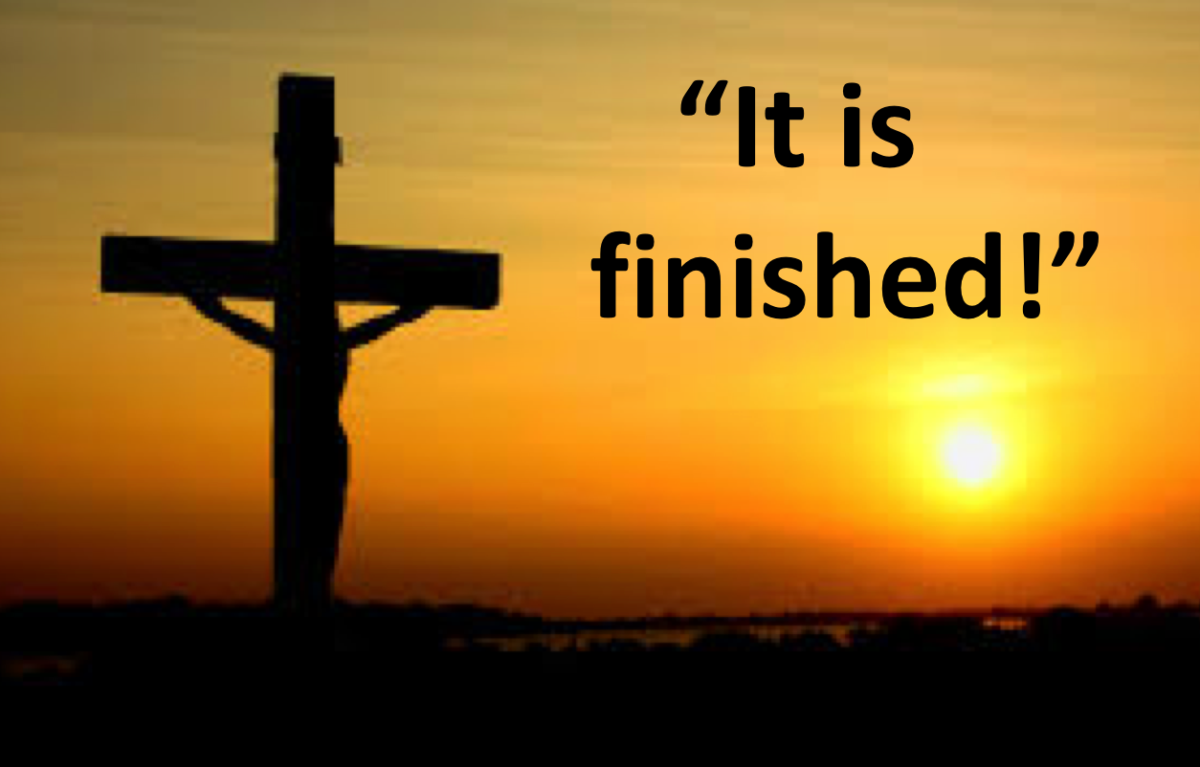“Jesus answered them, ‘I told you, and you do not believe. The works that I do in My Father’s name, they bear witness of Me.’ ” John 10:25
People today may feel extremely insecure and rightly so. Eleven percent of the world’s population are undernourished and 697 million people in the world are severely food insecure and do not know if any food will be available for them to eat. 1
Since the onset of COVID-19, we see a growing economic insecurity with the loss of jobs and businesses. Many people fear their financial situations will only get worse. There is also insecurity attached to the rise in social unrest, with peaceful protests turning into rioting. Violent conflict and crimes are on the rise throughout the world which is a tremendous source of insecurity for people today. 2
Psychologists have identified that the kind of childhood you had, past traumas, recent experiences of failure or rejection, loneliness, social anxiety, negative beliefs about yourself, perfectionism, or having a critical parent or partner can all contribute to our insecurity. 3
Some people feel insecure because they perceive that they are lacking or they have been told that they are lacking. For example, you may feel too fat, skinny, tall, short, old, young, educated or uneducated. We may try to compensate for our insecurities by telling ourselves, “If I had a nice house or a new car or a better job or was more popular, I would feel more secure about myself.” So, thinking that we are lacking something or someone may cause insecurity.
One of the most insecure feelings is not knowing where you will go after you die here on earth. The truth is all people die (unless of course you are a Christian and the Rapture or sudden removal of the Church takes place – I Thessalonians 1:10; 4:13-18). Not being certain of your eternal destiny produces deep seeded insecurity in people. People take extreme measures to avoid thinking about death. They color their gray hair, go on extreme diets and exercise programs trying to delay the inevitable.
Please understand, no matter how insecure you may feel right now, God does not want His children to be insecure. He has given us incomparable security in the Lord Jesus Christ and He wants us to share this security with a lost world that is becoming more and more insecure.
In the context of our passage today, there is a stark contrast between the false shepherds of Israel who brought death and insecurity to God’s people and the Good Shepherd who brings life and protection (John 10:1-21). This is Jesus’ last act in His public ministry. Let’s look now at how we can experience security forever. I CAN EXPERIENCE SECURITY FOREVER WHEN I …
IGNORE THE BLINDNESS OF CHRIST’S OPPONENTS (John 10:22-26). “Now it was the Feast of Dedication in Jerusalem, and it was winter.” (John 10:22). The Feast of Dedication is now known as Hanukkah or the Feast of Lights. Although it was not one of the feasts prescribed in the Mosaic Law, it was still an important and popular celebration that brought many Jews to Jerusalem.
The historical basis for this festival was the cleansing of the Temple in Jerusalem in 164/165 B.C. three years after their desecration by the Greco-Syrian Antiochus IV Epiphanes. Antiochus, in his zeal to Hellenize his realm, persecuted the Jews, plundered the temple treasury, and erected an idolatrous altar and sacrificed a sow to Jupiter. The Hasmoneans led by Judas Maccabeus revolted and eventually overthrew the forces of Antiochus. The festival commemorates this last great deliverance that the Jews had known and symbolized their hope that the Messiah would again deliver His people from their enemies, the Romans. 4
During the eight days of the Feast, the Hallel (Psalms of praise) was chanted, both in the Temple in Jerusalem and in private homes. During the rededication of the Temple in 164/165 B.C., tradition said that only one unpolluted bottle of oil was found, just enough to provide light for one day, but it was miraculously replenished for eight consecutive days. For this reason, the Feast lasts eight days and is called the Feast of Lights. 5
What is the significance of this Feast to the dialogue within this passage? Because of this feast, a large crowd had gathered for Jesus to teach. The regular synagogue readings nearest to the Feast of Dedication were concerned with the theme of shepherds and sheep (cf. Ezekiel 34). Some scholars suggest that the mention of the Feast was designed to connect Christ’s teaching with the hopes associated with the Maccabean deliverance. 6 “It was the last great deliverance that the Jews had known, and therefore it must have been in people’s minds a symbol of their hope that God would again deliver his people.” 7 Little did the people know that their prayers for another deliverance would be fulfilled through Jesus.
The Feast of Dedication took place in the middle of December. It had been three months since the Feast of Tabernacles in John 7:1-10:21. So the teaching in John 10:22-39 was three months following the teachings in John 7:1-10:21. The mention of “winter” in verse 22 explains verse 23. “And Jesus walked in the temple, in Solomon’s porch.” (John 10:23). Winter was the colder rainy season in Israel. In warmer weather, Christ would have taught in the courtyard of the temple. But because it was “winter,” He took shelter from the wet and windy weather in “Solomon’s porch” which was a long walkway covered by a roof supported on pillars on the east side of the Temple facing the Kidron Valley. One writer suggests that John mentioned that it was “winter” because it resembled the spiritual climate in Jerusalem, namely the frigid spirits of the Jews. 8
“Then the Jews surrounded Him and said to Him, ‘How long do You keep us in doubt? If You are the Christ, tell us plainly.’ ” (John 10:24). As Jesus walked down Solomon’s porch “the Jews surrounded Him” with hostile intent. The word translated “surrounded” (ekyklōsan) means they “besieged” Him. They pinned Him in so they could obtain a clear reply from Him about His identity. The question “If You are the Christ…” is in the first class of the Greek language and assumes for the sake of argument that Jesus is the Messiah-God. By asking for a plain statement that He was the Messiah they were implying that if they rejected Him, it was His fault and not theirs because He had not clearly stated that He was Israel’s Messiah.
Jesus responds. “I told you, and you do not believe. The works that I do in My Father’s name, they bear witness of Me.” (John 10:25). The Jews asked Jesus if He was the Christ, their Messiah-God, and Jesus says, “I told you again and again Who I am, yet you refused to believe Me.” They had His Word as to His Person, but they also had His works or miracles which testified that He was their Messiah. Even though Christ’s words and works provided sufficient evidence that He was their promised Messiah-God, they still refused to believe in Him. Why? Was it because of the lack of a clear statement from Christ about His identity? No.
“But you do not believe, because you are not of My sheep, as I said to you.” (John 10:26). Their unbelief was because they “were not of His sheep.” They did not listen to His Word, like sheep will listen to the voice of their shepherd. They were like the thief and hireling, bringing death and caring only for themselves (John 10:8, 10a, 12-13). So, the fault of their unbelief, was not His, but theirs.
If you and I are going to possess security forever, we must ignore the spiritual blindness of Christ’s enemies. Jesus gave them more than enough evidence that He was the promised Messiah-God, but they were determined not to believe in Him. They had no interest in becoming His sheep.
There are many skeptics today who ignore the sufficient evidence concerning Jesus’ identity as the Messiah-God. Even though the historical evidence overwhelmingly points to Jesus as the Messiah-God Who lovingly died on the cross for the sins of the world and rose from the dead, skeptics continue to deny these historical facts. They undermine the clear promises of Jesus which state that all you must do to possess eternal life is believe in Him (John 3:15-16; 4:10-14; 5:24; 6:40, 47; 10:25-27; 11:25-26). God wants us to ignore these impostors and focus on the promises of our great God and Savior, Jesus Christ (Titus 2:13).
Some of you reading this article have been taught that Jesus never claimed to be God and never died on a cross to pay the penalty for all your sins. But still you are here wanting to learn more about Jesus. Your soul is restless and you have no security about your future. Give Jesus a chance. He has drawn you here to reveal more of Himself to you.
Jesus is the Good Shepherd, but you have experienced spiritual leaders that care only about themselves and use their religion to meet their own needs instead of care for the people entrusted to them. Jesus loved you so much that He laid down His life for you and me on the cross. When the Messiah-God died in our place as our Substitute, God was satisfied with His perfect payment for all our sins (cf. I John 2:2; 4:10). That is why Jesus said while hanging on the cross, “It is finished!” (John 19:30). The Greek word translated “finished” (tetelestai) means “paid in full.” Receipts in New Testament times were stamped with this word which meant that the debt had been paid in full. Jesus finished making the full payment for all our sins when He died in our place. There is no more payment to be made because God was satisfied with Jesus’ payment.
This is substantiated further when Matthew tells us at the time of Jesus’ death on the cross, “the veil of the temple was torn in two from top to bottom.” (Matthew 27:51). This “veil” or curtain separated the holy place from the holy of holies in the Jewish temple (cf. Exodus 26:33; Hebrews 9:2-3). The fact that this occurred “from top to bottom” signified that God is the One who ripped the thick curtain. It was not torn from the bottom by men ripping it. God was showing that the way of access into His presence was now available for everyone, not simply the Old Testament high priest (Hebrews 4:14-16; 10:19-22), because God was satisfied with Jesus’ payment for our sins. No other animal sacrifices or payments were necessary to enter God’s presence in heaven.
Jesus Christ laid down His life for us so we may have life that never ends the moment we believe or trust in Him alone. Since God was satisfied with the sufficient sacrifice of His perfect Son to pay the penalty for all our sins (Isaiah 53:11; John 19:30; I John 2:2; 4:10), we must also be satisfied with what satisfied God – Jesus’ death on the cross. God cannot accept anything we do as payment for our sins because He has already accepted His Son’s payment for all of our sins when He died in our place on the cross.
Jesus did not say, “Whoever does good works… prays every day and lives a good life should not perish but have everlasting life.” No, Jesus said, “Whoever believes in Him should not perish but have everlasting life.” (John 3:16). Being secure forever is not faith in Christ PLUS something else. It is faith in Christ alone.
Prayer: Lord Jesus, all of us in the world today have many reasons to be insecure. We may have external reasons and internal reasons for our insecurity. But You do not want any of Your children to be insecure about Your identity. You have given us Your Word which never changes to provide security that lasts forever. Because You experienced opposition to Your identity as the Messiah-God when You walked on the earth 2,000 years ago, we can know that You understand and sympathize with us when we encounter opposition to Your identity today (Hebrews 4:15-16). When the ruler of this world and his false shepherds attack Your identity, help us to focus on Your voice of truth. Because You, Father God, were satisfied with Your Son’s payment for the sins of the world when He died on the cross, we must also be satisfied with what satisfied You. I pray in Your name, Lord Jesus, that Your Holy Spirit will persuade lost and insecure people to believe the truth about You – that Your are the Promised Messiah-God, Whose death on the cross satisfied God’s demand to punish sin. And now whoever believes in Jesus alone may have never-ending life in His name. Once this life is received, it can never be lost because it is eternal and it is based on Your faithfulness to Your promises, not ours. Lord Jesus, You are the truth and You cannot lie. Thank You my Lord and my God for security that lasts forever! In Your name I celebrate. Amen.
ENDNOTES:
1. See https://ourworldindata.org/hunger-and-undernourishment#severe-food-insecurity
2. https://www.un.org/en/un75/new-era-conflict-and-violence
4. Dr. Tom Constable, Notes on John, p. 192.
5. J. W. Shephard, The Christ of the Gospels (Grand Rapids: Eerdmans), 1946, p. 400.
6. J. Carl Laney, Moody Gospel John Commentary (Chicago: Moody Press, 1992), pg. 193.
7. Leon Morris, The Gospel According to John. New International Commentary on the New Testament series (Grand Rapids: Wm. B. Eerdmans Publishing Co., 1971), p. 459.
8. John G. R. Beasley-Murray, Word Bible Commentary series, Second Ed. (Waco: Word Books, 1987), p. 173.




